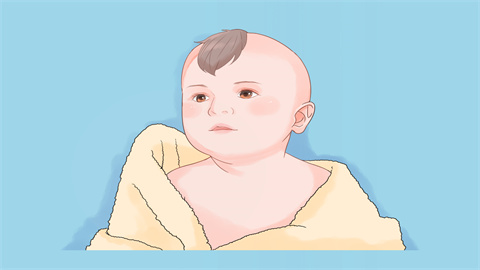What to do if a three-month-old baby has a fever
Generally, a three-month-old baby's fever may be related to factors such as excessively high environmental temperature, overdressing, excessive crying or activity, upper respiratory tract infection, or gastrointestinal infection. It is recommended to seek timely medical attention and follow the doctor's guidance for general treatments or medication as appropriate. A detailed explanation is as follows:

1. Excessively High Environmental Temperature
A baby's thermoregulation, balancing heat production and dissipation, is easily affected by environmental temperature. When the ambient temperature is too high, the baby's body cannot effectively dissipate heat, leading to elevated body temperature. It is recommended to maintain an appropriate environmental temperature for the baby and avoid prolonged exposure to high temperatures or enclosed spaces.
2. Overdressing
Parents concerned about the baby getting chilled may dress the baby in excessive clothing or wrap too tightly, preventing heat dissipation and causing elevated body temperature. It is recommended to adjust clothing and wrapping according to weather changes and the baby's actual condition, avoiding excessive warmth.
3. Excessive Crying or Activity
When a baby cries or is active, his or her metabolic rate increases, producing more heat. If this heat cannot be dissipated promptly, it can lead to elevated body temperature. It is recommended to soothe the baby's emotions and prevent prolonged crying.
4. Upper Respiratory Tract Infection
Upper respiratory tract infections are usually caused by viral or bacterial infections. These infections intensify inflammatory responses in the baby's body, releasing inflammatory mediators that cause elevated body temperature. Symptoms typically include runny nose, coughing, and sneezing. Medications such as compound paracetamol and amantadine tablets, isatidis root granules, and oseltamivir phosphate capsules may be used following medical advice.
5. Gastrointestinal Infection
Gastrointestinal infections are caused by bacterial, viral, or parasitic infections. These infections cause gastrointestinal inflammation in the baby, leading to elevated body temperature. Symptoms generally include diarrhea, vomiting, and abdominal distension. Medications such as cefixime capsules, meloxicam tablets, and loperamide hydrochloride capsules may be used under a doctor's guidance.
It is important to maintain the baby's personal hygiene and keep the living environment clean. Regularly disinfect the baby's bottles, toys, and other items to prevent disease occurrence.




